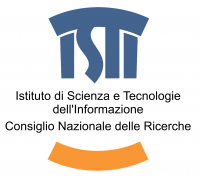Alessandra Piergrossi, Alessandra Caravale
Digital archaeology in the 21st century promotes an interdisciplinary approach, which requires to model complex systems in line with the policies of international research and in close connection with the socio-economic conditions of each country. New perspectives of investigation are offered by ICT solutions, through integrated platforms on which methods and resources of different disciplines can be managed simultaneously, contributing in this way to reconstruct cultural and social stratification phenomena.
In the context of data documentation, applications are now oriented to overcome the level of data cataloguing, using the Internet as an environment for consultation and knowledge sharing which facilitate the integrated work of the various bodies responsible for the preservation and dissemination of cultural heritage. Collections of documents in digital format, produced or acquired for cultural purposes, are increasing and new standards have been recognized as reference logical models for formalising the procedures of acquisition, integration and access to digital information. Also on-line archaeological journals are gaining a growing success due to several factors, such as the need of new means for knowledge dissemination, as well as the gradual but constant emergence of “open access” and “open data” philosophy, which offers free access to scientific information.
The session intends to present some case studies related to archaeological corpora, databases, digital repositories and open access journals to provide insights about digital resources actually available on-line that constitute an effective and efficient instrument in archaeological research. The panorama of digital resources in which the archaeologist should navigate is still rather disorganized and not very systematic. As often happens in the early stages of transition, new initiatives continually arise, often of extemporaneous nature; some experiences consolidate, while others wreck quickly; some interesting projects remain isolated and circumscribed within the institutions that have promoted them, not being made available to the wider scientific community. Therefore, the continuous widening of resources deserves to be followed, constantly monitored and reviewed in its development and this session aims to offer a specific space devoted to internationally debate these topics.
Keywords: digital repositories; digital corpora; open data; open access journals; on-line resources


